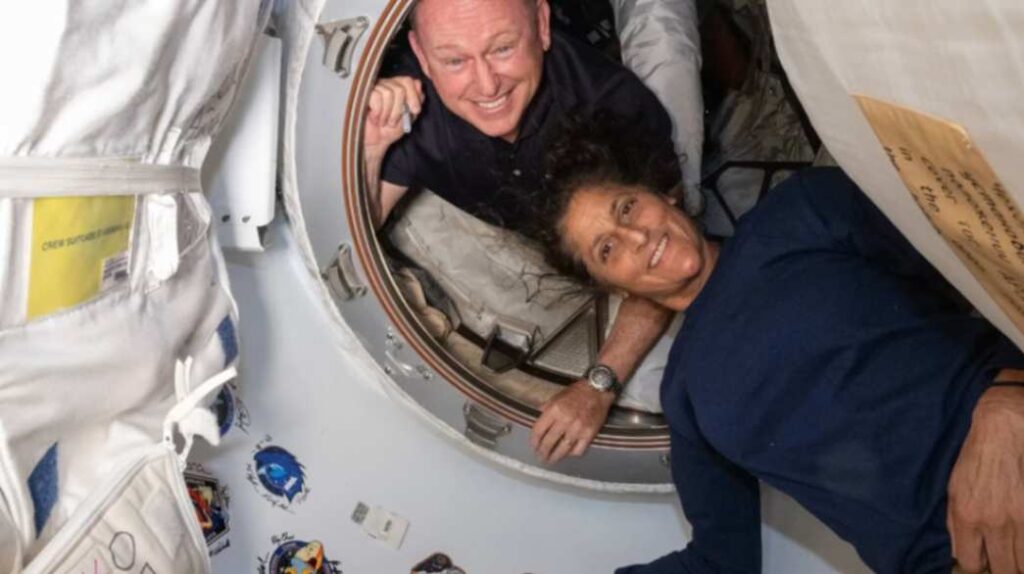After spending more than nine months in space, NASA astronauts Sunita Williams and Butch Wilmore will undergo medical examination. The duo have spent significant time in microgravity, floating inside the International Space Station and spacewalks.
Experts say that spending a prolonged period in space can change human physiology and psychology. NASA said muscle mass decreases because of decreased use and lack of stimulus through exercise equipment and bone loss. It highlighted that in microgravity, blood and cerebrospinal fluid often shift upward from lower extremities to the head and eyes. Which can cause eye and brain structural changes.
Health experts also pointed out that without Earth’s gravity, bones that support the human body’s weight can lose about 1% to 1.5% of mineral density on average per month in space. And without consuming a proper diet and getting proper exercise, astronauts lose muscle mass faster in microgravity than they would on Earth.
Moreover, Sunita Williams, Butch Wilmore and other crews are at risk of developing kidney stones due to dehydration or excreting calcium from their bones without preventive measures. As such, they will undergo a medical examination and work to readapt to Earth’s gravity and rebalance their equilibriums for daily activities like walking and standing straight.
Also Read: Pakistan to Deport 800,000 Afghan Refugees After Jaffar Express Train Hijack, Terrorist Attacks
Sunita Williams and Butch Wilmore: NASA Astronauts Have Higher Lifetime of Cancer

NASA said astronauts can be at significant risk for radiation sickness because of prolonged exposure. They have a higher lifetime risk of cancer, central nervous system effects and degenerative diseases. It shared that crews on the ISS receive an average of 80 mSv to 160 Millisieverts (mSv) during a six-month stay. The space agency explained that 1 mSv of space radiation is roughly the same as receiving three chest X-rays.
Dr Rihana Bokhari, acting chief scientific officer at Baylor College of Medicine’s Translational Research Institute for Space Health, said astronauts in low earth orbit are partially protected by the magnetosphere that protects Earth from the radiation exposure of deep space. But they do have a greater radiation exposure than those on Earth because the ISS passes through areas of trapped radiation in their orbit.
However, Bokhari said the Williams and Wilomore would not be exposed to enough radiation to seriously cause large impacts on body systems because they were on the space station. She added that long-duration exposure to greater radiation than on Earth could lead to an increase in the risk of cancer.